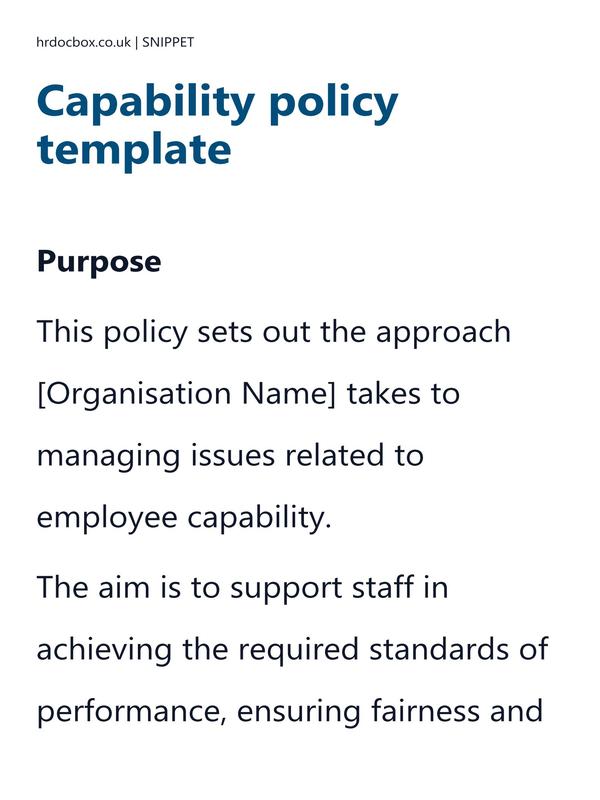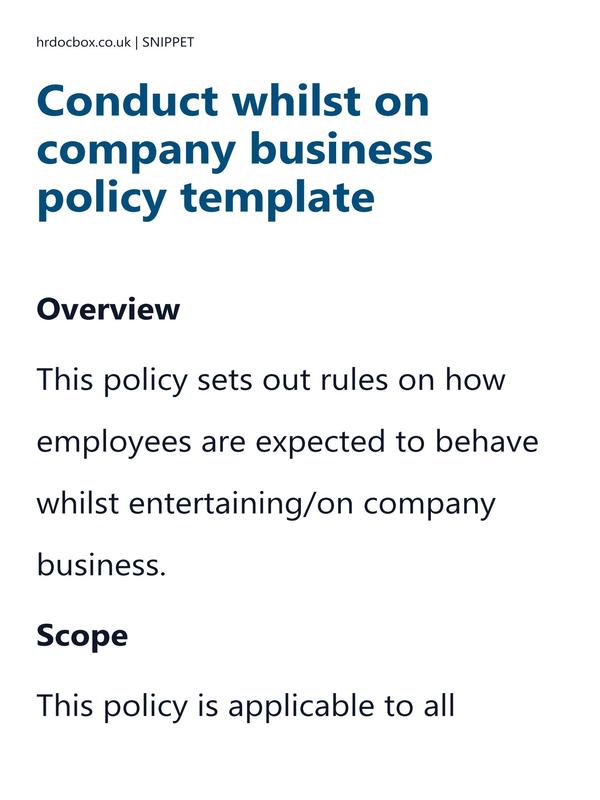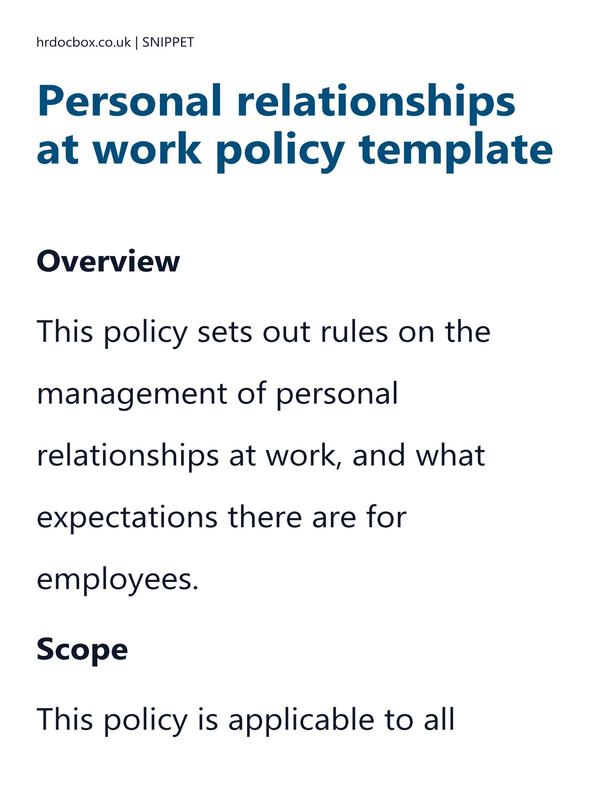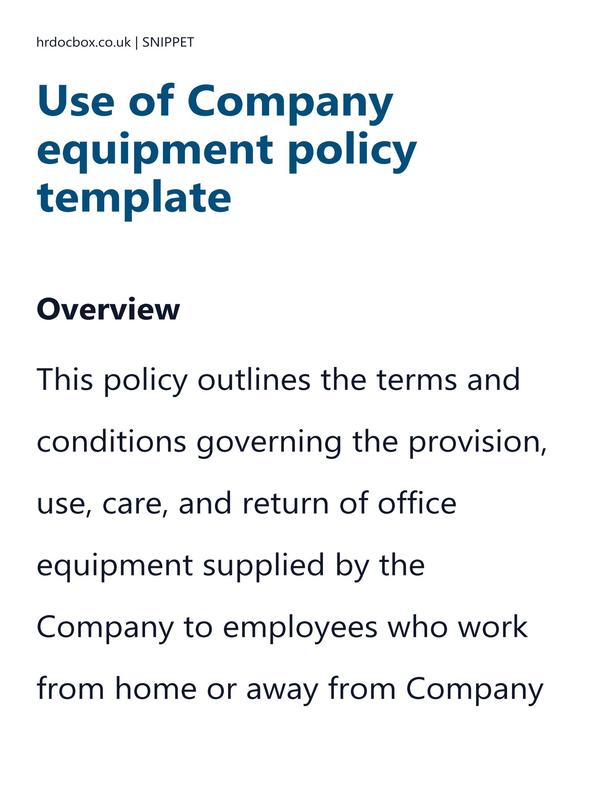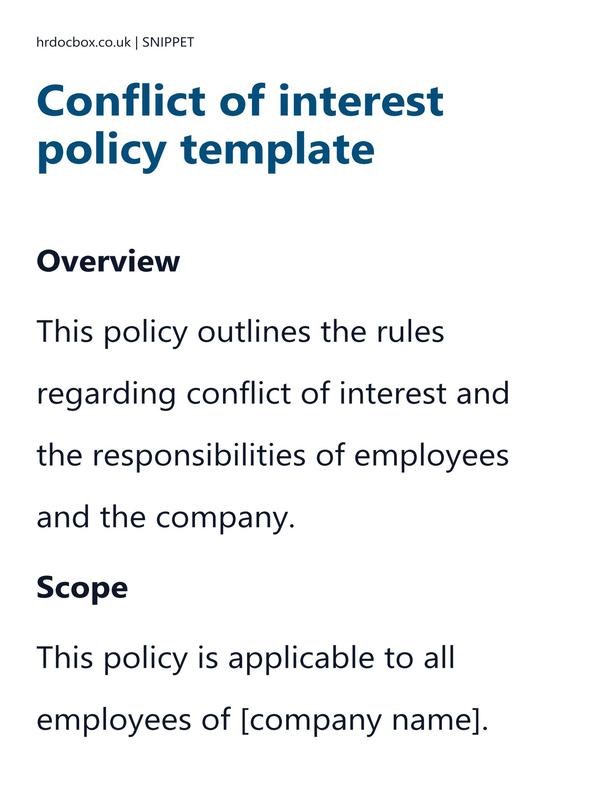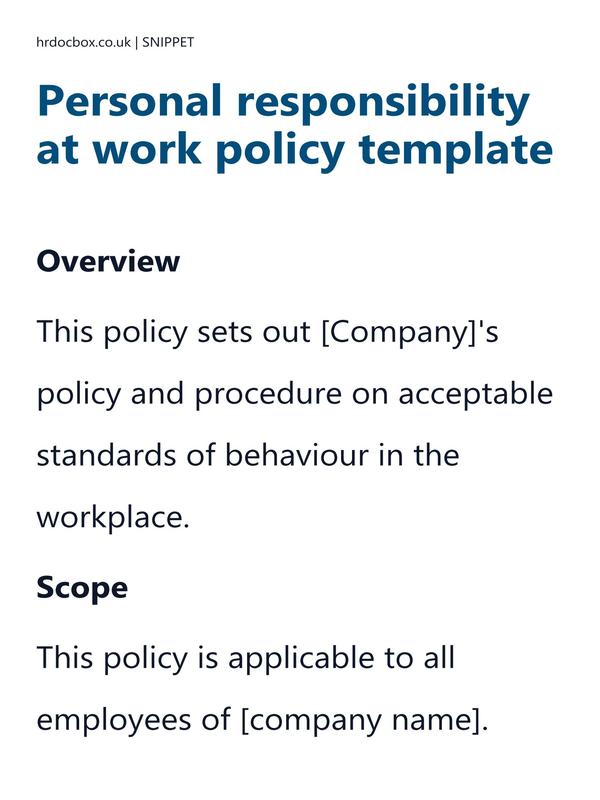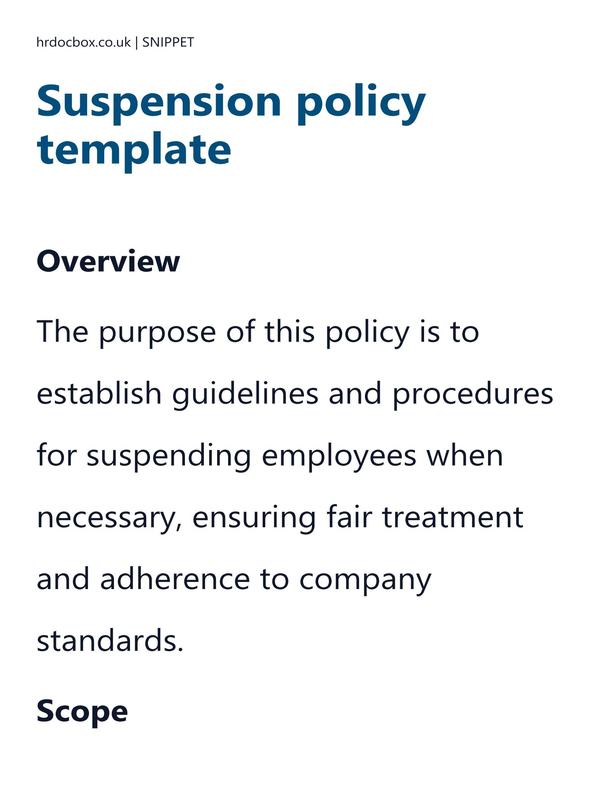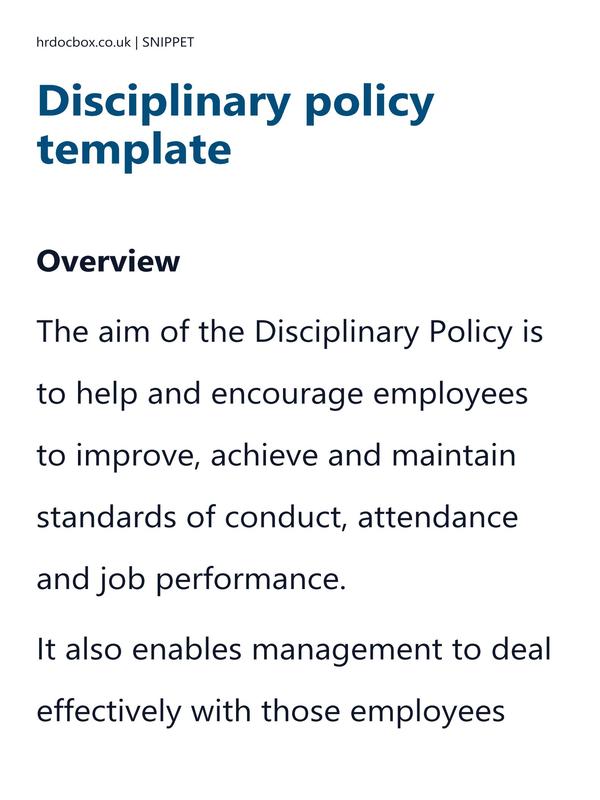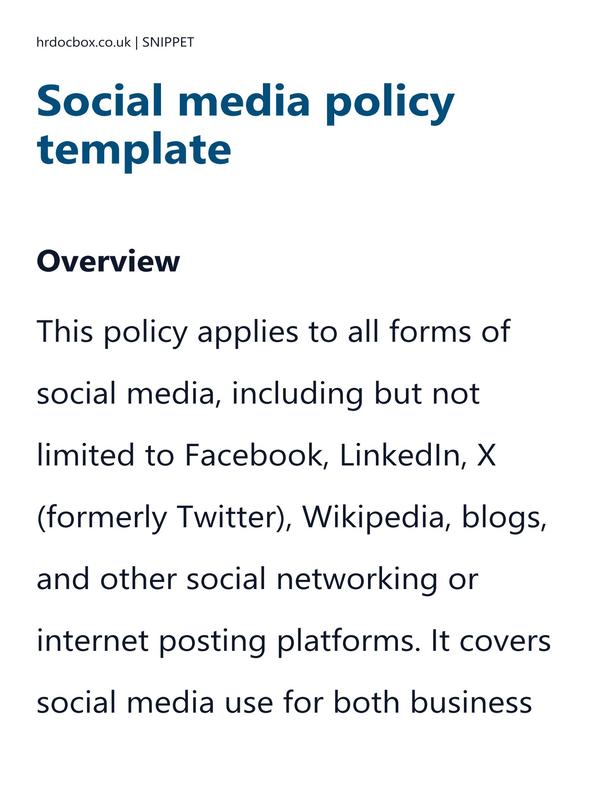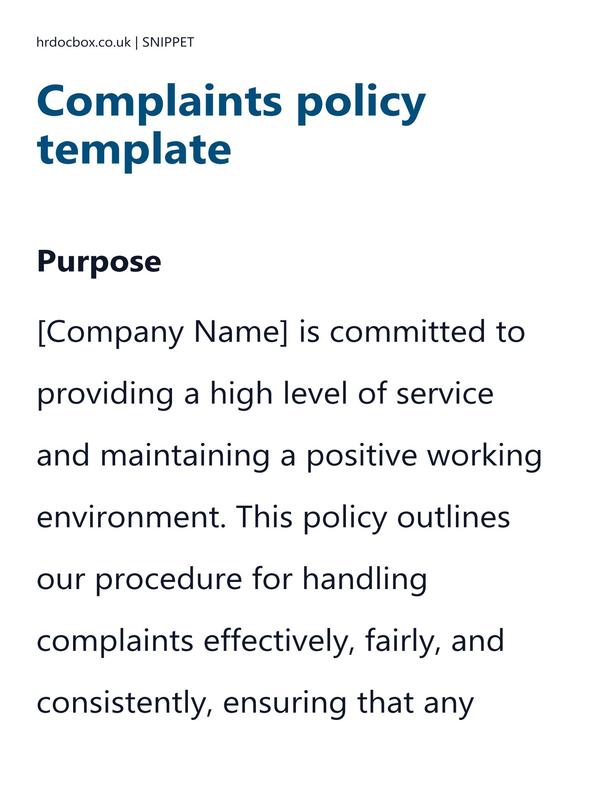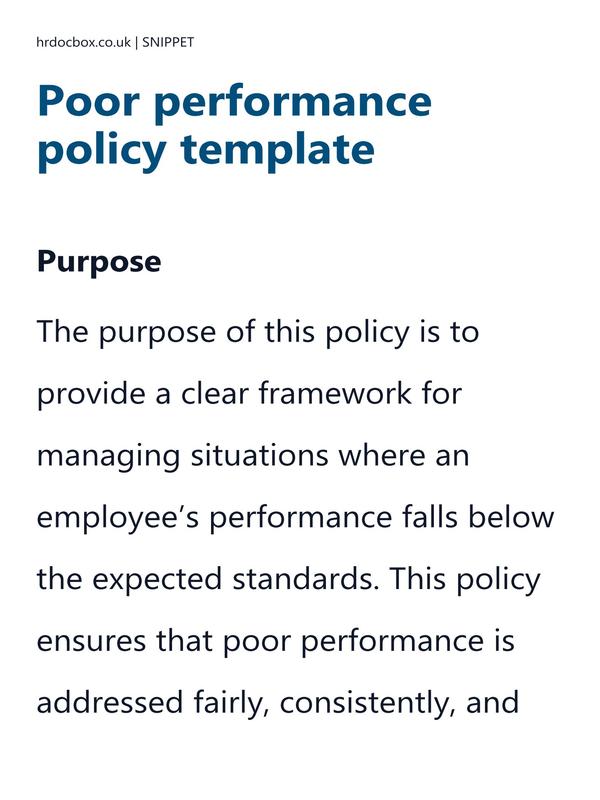Conduct policy templates
Our Conduct Policy Templates address workplace behaviour, mitigating issues, and fostering a respectful culture among employees.
If you need policies to communicate your company rules and support regarding behaviour and conduct, these policy templates provide an effective legal framework.
By setting rules and expectations, employees know how to act at work and can be more successful in their roles.
- Includes 12 months' access to 14 Conduct templates, with all updates to the Conduct policy templates provided free of charge and notified to you.
- UK-specific accuracy.
- Instantly download templates as Word / PDF / plain text, or send by email.
- These Conduct policy templates will SAVE you up to 9 hours drafting & research, save you money, and reduce your risk.
Conduct
Conduct policies contain the rules both employees and employers must adhere to. They outline how people should appropriately interact with one another at work.
Why are conduct policies important?
- They can demonstrates a Company's values
- They can provide guidelines for behaviour
- They can help the Company to act within the law
- They can help to improve and maintain employee morale
- They can enable Companies to measure employee success
Conduct templates are essential for clearly defining company policies and setting consistent employee expectations around Conduct arrangements.
Compliance
Compliance
-
The Equality Act 2010: This legislation prohibits discrimination on the basis of protected characteristics such as age, disability, gender reassignment, race, religion or belief, sex, and sexual orientation. Employee conduct policies must not discriminate against any particular group of employees or disadvantage individuals with protected characteristics./li>
-
The Data Protection Act 2018: This legislation sets out the requirements for the collection, use, and storage of personal data. Employee conduct policies must ensure that any personal data collected as part of monitoring employee conduct is done in compliance with this legislation.
-
The Human Rights Act 1998: This legislation incorporates the European Convention on Human Rights into UK law and protects fundamental human rights such as the right to privacy and the right to freedom of expression. Employee conduct policies must ensure that any monitoring of employee conduct is done in compliance with these fundamental rights.
-
The Employment Rights Act 1996: This legislation sets out the rights of employees in relation to disciplinary procedures. Employee conduct policies must ensure that employees are provided with adequate information about the standards of conduct expected of them and the consequences of breaching these standards.
-
The Health and Safety at Work etc. Act 1974: This legislation requires employers to ensure the health, safety, and welfare of their employees. Employee conduct policies must ensure that employees are aware of their responsibilities in relation to health and safety and that they comply with all relevant health and safety requirements.
-
The Bribery Act 2010: This legislation makes it a criminal offence to offer, promise, or give a bribe, and to request, agree to receive or accept a bribe. Employee conduct policies must include provisions on bribery prevention and ensure that all employees are aware of their responsibilities in relation to bribery.
-
The Criminal Finances Act 2017: This legislation makes companies criminally liable for failing to prevent the facilitation of tax evasion. Employee conduct policies must include provisions on preventing the facilitation of tax evasion and ensure that all employees are aware of their responsibilities in relation to tax evasion.
Frequently Asked Questions about Conduct templates
Frequently Asked Questions about Conduct templates
-
Can small businesses use these Conduct policy templates?
Yes. The Conduct policy templates are designed to be flexible and suitable for organisations of all sizes, including small businesses and charities. They follow UK employment law best practice, so even if you don't have an in-house HR team, you can confidently manage Conduct processes and issues.
-
Are these Conduct policy templates up to date for UK law in 2026?
Absolutely. All templates are drafted with the latest ACAS guidance and UK employment legislation in mind. We review and update them regularly, so you can be confident they remain compliant.
-
What types of Conduct policies are included?
Every toolkit includes a complete set of editable policy templates, designed to save time and ensure compliance.
-
How will this help me as an HR manager or business owner?
Purchasing the policies saves you hours of drafting time and reduces the risk of legal mistakes. Instead of starting from scratch, you'll have clear, professional policy templates that you can adapt to your business.
-
Do I get instant access to the policy templates?
Yes. Once purchased, you'll be able to download the Conduct policies instantly. The templates are provided in editable Word or Excel format so you can customise them easily, and PDF format for easy sharing.
-
Can I preview a sample Conduct template before buying?
We provide free examples of our templates here. This gives you a sense of the quality and layout before you commit to purchasing the full toolkit.
-
What if I need a full HR toolkit, not just Conduct templates?
If you're looking for broader support, we also offer library bundles that include Conduct templates along with absence, grievance, and other HR policies. These may be more cost-effective if you need a complete HR library.
-
Why should I use these templates, and not AI to generate them?
The risk of using free AI-generated templates 'without review' includes your legal exposure, missing context, and no awareness of the wider process. Purchasing from us mitigates that risk.


